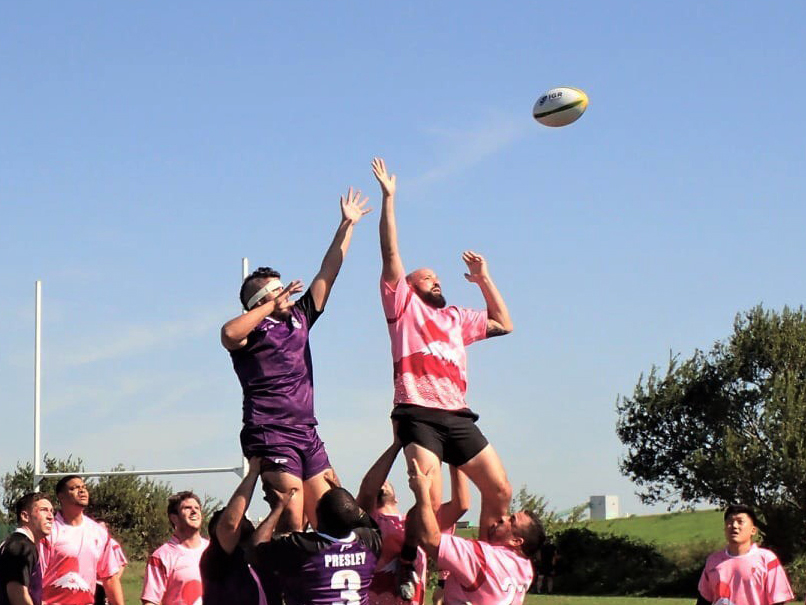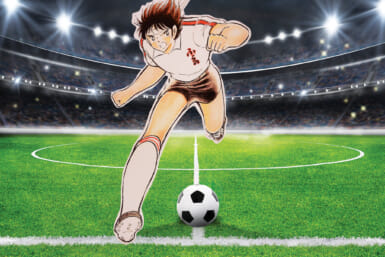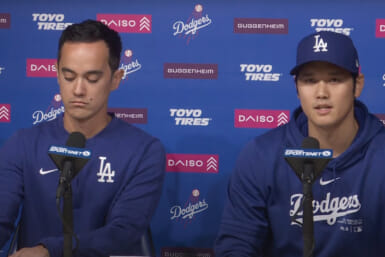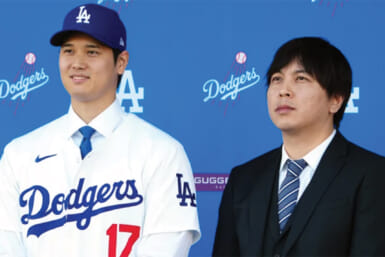On October 4, 2019, The Japanese Rugby Football Union (JRFU) took a massive stride towards more diversity and inclusivity in Japan’s rugby sphere. With a host of distinguished guests as their witness, the JRFU and International Gay Rugby (IGR) – a charitable organization aimed at promoting equality and eradicating discrimination on grounds of sexual orientation within rugby – signed a joint memorandum for the first time in their respective histories.
Included within the memorandum is a protective legislature which supports gay rugby players, and a robust framework designed to prevent and deter discrimination within the sport. It is a landmark move for a nation where being part of the LGBTQ community still carries the weight of a heavy stigma. The hope is that we’re seeing just the tip of the iceberg, and the beginnings of a new paradigm through which the sport is viewed nationwide.
The International Inclusivity Challenge
The IGR directive for fostering inclusivity in Japan, and the subsequent memorandum, were part of the International Inclusivity Challenge (IIC), an offshoot of the organization led by Aaron Pokluda. I met up with the 23-year-old Texan to understand the significance of this event for rugby in Japan.
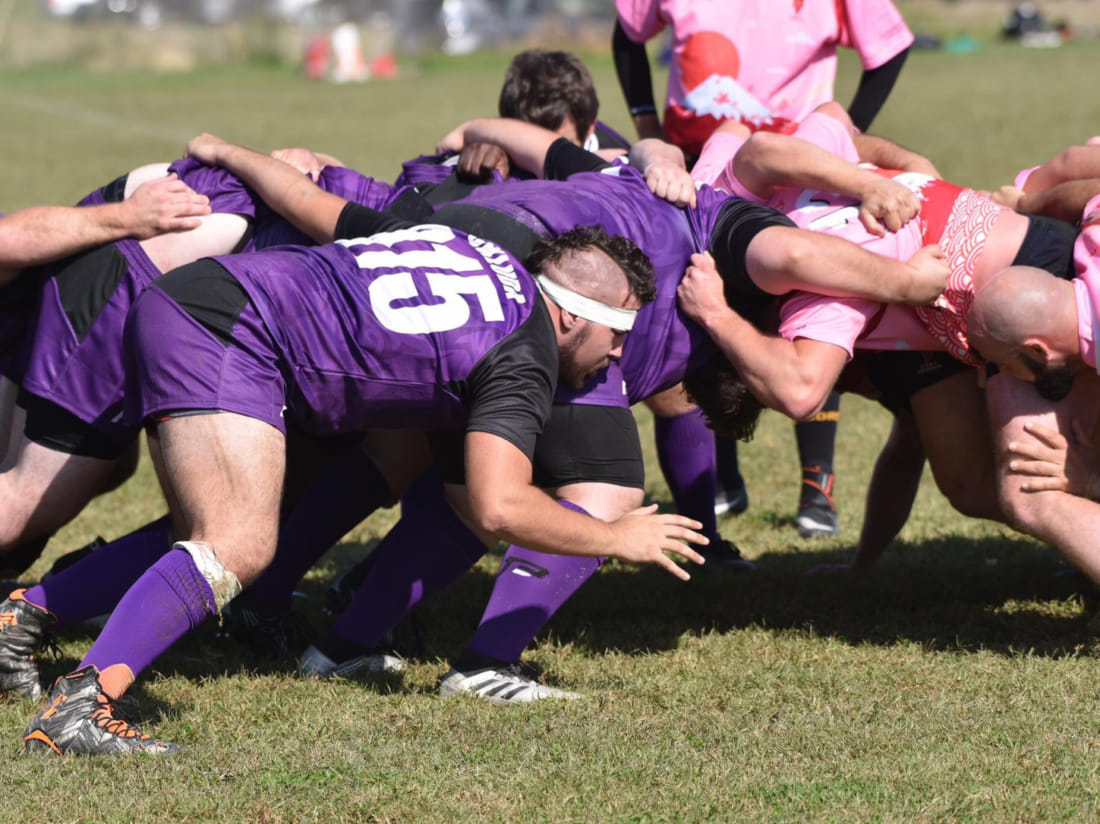
Photo courtesy of Aaron Pokluda
Pokluda moved to Tokyo from El Paso just over a year ago, and I was intrigued to know how he found himself operating within Japan’s gay rugby niche. “It’s a long story,” he tells me. So, he gives me the short one. “It was difficult to find a rugby club that I could play for after I graduated from university, until eventually, by chance, I joined a club in Dallas called Lost Souls RFC… They said, ‘Listen we’re an all-inclusive club, a gay club, is that okay?’. I said ‘Sure, no problem.’ And the rest is history.”
Lost Souls RFC subsequently went to the Gay Rugby World Cup (also called the Bingham Cup) in Amsterdam in 2018 and won the tournament in its division, strengthening Pokluda’s links to the gay rugby community. “During the competition I met a guy from Osaka who told me that they had no gay team in Tokyo yet. He heard I had some experience with the administrative side of setting up rugby clubs and said, ‘You wanna help set it up?'” Pokluda duly obliged.
It wasn’t long before Chris Verrijdt, IGR’s trustee from the Rest of the World (i.e. not from Europe or North America), got in touch with Pokluda about helping out with IGR’s inclusivity efforts. After coming to an agreement, Pokluda was given the official title of IGR’s Asset Coordinator to Japan; the International Inclusivity Challenge was born.
There were guys crying after the first game. They’re finally part of a community that accepts them for who they are.
The Samurai
Pokluda founded the Tokyo Inclusive Rugby Club in January, before joining forces with the founder of Osaka Inclusive Rugby to set up a new “all-star” club for the gay community in Japan. He tells me, “I had set up five clubs in the past, two myself, and had a big hand in three. So, I knew what was necessary to get a rugby club going from the ground up.” The club had its first game on October 5 (the day after the memorandum was signed).
“The club’s official name is the Japan International Gay Rugby Samurai Warriors,” Pokluda says. “The name came from the guy from Osaka, about whom other team members say ‘fights with the heart of a samurai.’ We felt that notion really embodies the spirit of what this team is about.”
The Samurai’s first game was played against a select side from the World Barbarians RFC (another all-inclusive club). “I realized that IGR was connected to the World Barbarians, so I reached out to them about playing in Japan’s first ever fully-inclusive rugby match,” he tells me. The US-based Barbarians were evidently thrilled at the prospect, sending a 60-strong squad of players to Japan for some exhibition games against the Samurai (and two other clubs, Tokyo Crusaders and the touring Beijing Devils).
“It was an incredibly emotional day all round,” Pokluda says. “There were guys crying after the first game. They’re finally part of a community that accepts them for who they are.”
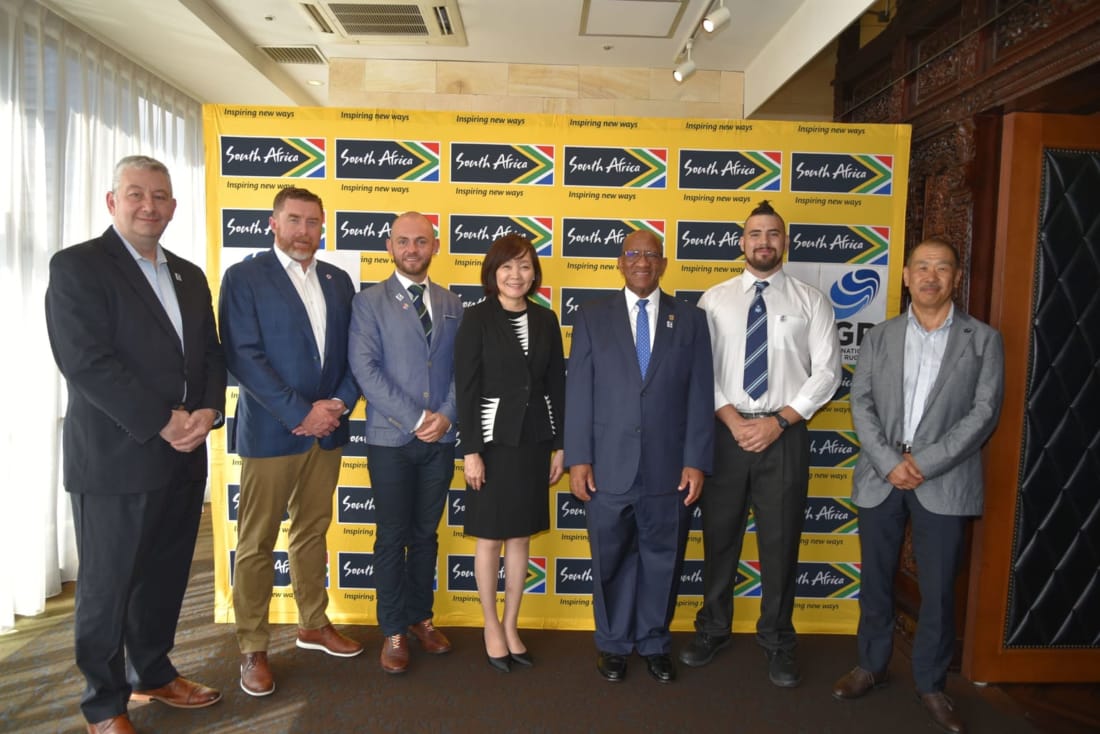
From left, William Howell, president of the World Barbarians Foundation; Allen Vansen, CEO, Rugby Canada; Ben Owen, chair, IGR; Mrs. Akie Abe, spouse of the Prime Minister of Japan; H.E. Mr. Lulama Smuts Ngonyama, ambassador of the Republic of South Africa to Japan; Aaron Pokluda, coordinator, International Inclusive Challenge; Nobuta Tsunemi, director of the board, Japanese Rugby Football Union | Photo courtesy of World Rugby
An Antiquated School of Thought
Given the stigma surrounding sexual orientation in Japan, I pressed Pokluda on what the current barriers to entry are. “Many gay men here are in the closet, and it was difficult to find a way around this without causing social exile. I think a lot of players join to be part of a team, not just for the rugby,” he says. “Some players even have fake virtual girlfriends, and other guys lie to their families. And the guys in big corporate positions can’t risk letting their companies know that they’re gay.”
While it’s encouraging to see the steps taken thus far by Pokluda and co., it’s an indictment of the current social perception of homosexuality in Japan, that a person struggles to be openly gay without being castigated to the fringes of society. “We still have to blur out faces when we take match photos so as to protect the players’ identities,” he tells me.
Pokluda also recounted a story where the Samurai were to hold a free skills training session at a local high school, until the (unnamed) school found out it was a ‘gay’ rugby club, and pulled out from the session with immediate effect. While this may be an isolated incident, it feels like part of a larger systemic problem. In a country that should be capitalizing on the hype of hosting the 2019 Rugby World Cup, it’s a shame an antiquated school of thought like this can prevail. The powers that be should be striving to break down any and all barriers impeding children from getting introduced to the game, especially when said barriers are unrelated to sport.
We want to fight for what’s right, and to fight for their right to play rugby.
The Future of IGR
So, with so much work still left to do, what does the future hold for IGR and the International Inclusivity Challenge?
“We want to target countries with similarly conservative beliefs, like South America and South Africa”, says Pokluda. “But currently I’m only focusing on Japan. In a short time (less than a year) we went from nothing (in Japan), to writing up a protective legislature and we’ve received an increasing amount of media coverage. In January [the Samurai] was 15 guys in a LINE chat group, which has now grown to 40 dedicated players. It’s amazing. So, we have definitely made progress.
“The Bingham Cup in 2020 is up next, and who knows after that. Ultimately, we want to make it so that these guys don’t have to hide. We want to fight for what’s right, and to fight for their right to play rugby.”
Feature photo courtesy of Aaron Pokluda

